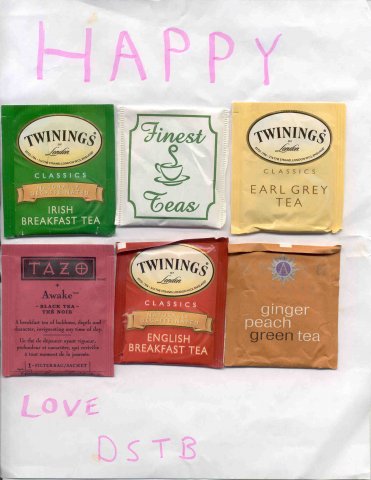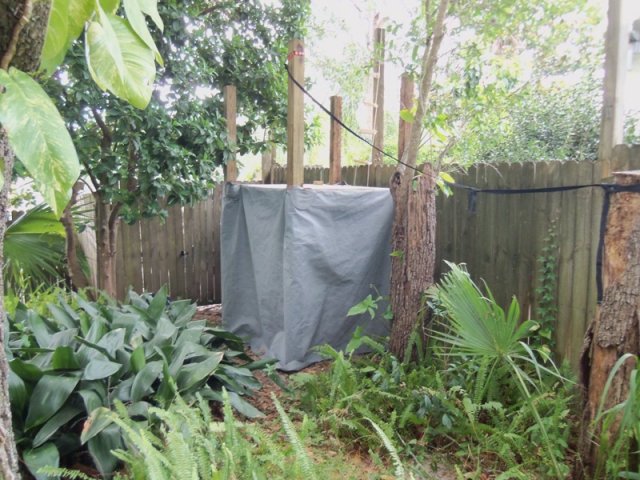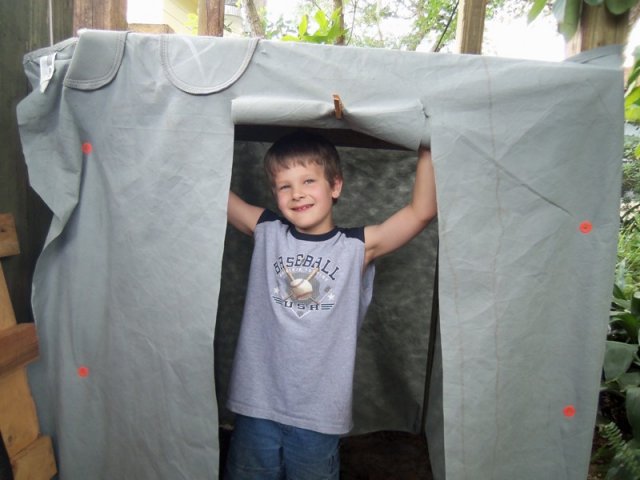I didn't see Aly Raisman win her Olympic gold medal in floor exercise, as it was shown past even my Olympic-extended bedtime. But I did watch the balance beam competition earlier, and that's where I saw her gold-medal performance. Yes, I know she won bronze on balance beam. But until her shockingly low score was re-evaluated and raised by the judges, she thought she had lost to Romanian Catalina Ponor.
What did Raisman do when she realized she had lost the bronze? Did she cry, or swear, or sulk? No, she walked over to Ponor and gave her a congratulatory hug.
Frankly, I find the Olympics mostly boring these days, now that the competitors and their performances are no longer amateur. As a friend of ours, a National Football League referee, once said of football, "Don't kid yourself. This is about business, not sport." Raisman's display of good sportsmanship was the best thing I've seen from the London Olympics so far.
Permalink | Read 2533 times | Comments (0)
Category Everyday Life: [first] [previous] [next] [newest]
Skip this post if you are tired of reading about our fabulous grandchildren. :)
I was talking with Janet the other day, and as I usually do, I asked what new cute things our grandkids were doing.
"Well," she replied, "Joseph counted nearly to 50."
This puzzled me, as numbers are his passion and a month ago he had happily counted past 150 for me.
Then she added, "in Japanese."
 Last night we attended a very enjoyable performance of The Pirates of Penzance, proceeds of which were earmarked for a much-needed upgrade to the sound system at the Lake Brantley High School auditorium. Our choir director and several people from our church were involved. We almost joined the chorus, but demured after remembering that being involved in a theatrical performance is synonymous with having no outside life. Daily rehearsals were more than we could handle. Still, I regret somewhat losing the opportunity to be able to say that every member of our family had sat, however briefly, under the direction of Cindy Berry.
Last night we attended a very enjoyable performance of The Pirates of Penzance, proceeds of which were earmarked for a much-needed upgrade to the sound system at the Lake Brantley High School auditorium. Our choir director and several people from our church were involved. We almost joined the chorus, but demured after remembering that being involved in a theatrical performance is synonymous with having no outside life. Daily rehearsals were more than we could handle. Still, I regret somewhat losing the opportunity to be able to say that every member of our family had sat, however briefly, under the direction of Cindy Berry.
The show was great! Everyone from the principals (local arts educators) to the middle-school policemen did wonderfully well. The Pirate King was played by Christopher McCabe, Brantley alumnus and now the theater director at a local private school. (I believe he was a freshman when Janet was a senior and no longer spending much time on campus, so don't wrack your brains trying to remember him.) If his performance owed just a little too much to Johnny Depp, that didn't stop him from stealing the show.
Pour, oh pour the pirate sherry, fill, oh fill the pirate glass—and raise it in a toast to Joyce K., who taught us to love Gilbert & Sullivan.
Happy Swiss National Day to our family and friends across the sea!
Here are sixteen-plus minutes of this year's fireworks in Basel, in case you missed them in person. I didn't sit through the whole show, but what I did see was very impressive.
Permalink | Read 2342 times | Comments (0)
Category Everyday Life: [first] [previous] [next] [newest]
Whenever we're not out of the state—or the country—on July 4, our favorite way to celebrate Independence Day is marching with the Greater Geneva Grande Award Marching Band. That's Geneva, Florida, population 2,940 give or take a few, not the larger and more famous Swiss version. I can't complain about missing the parade this year, as we instead spent the day with family and friends, some of whom had flown all the way from Switzerland (not Geneva) or the Gambia (think West Africa) to be there!
But if we had not been in such illustrious company and more than a thousand miles from home, we'd have been with our GGGAMB family. Camaraderie, music (and then some), free hot dogs, all the water you can drink (and sweat away), the fun of interacting with the crowd, and my all-time favorite arrangement of the Star-Spangled Banner (we miss you, Greg!), all wrapped up in a pleasant mix of old American patriotism and new American diversity.
I've written about the event before (for example, last year), but this time I have videos! We're not in them, but you'll get the idea well enough.
The band plays All Hail, Geneva! with our trademark Union Break in the middle.
If that experience didn't make you run from the room screaming, you can find more from the band here. (Janet, I recommend you click on that link and scroll to the bottom of the page.)
Richard, you did a great job with the cymbals, but I'm coming back anyway.
Permalink | Read 2452 times | Comments (0)
Category Everyday Life: [first] [previous] [next] [newest]
If we didn't live in Mickey's backyard, I don't know if our kids would ever have been to Disney World. They never were much into the Disney characters, and (thankfully) were born too soon to be part of the Disney Princess craze. But there’s a divinity that shapes our ends, rough-hew them how we will—our children grew up in Central Florida, and between good Florida resident deals and free tickets earned through performances at the parks, Disney World was a formative influence in their lives, and ours as well. EPCOT Center, most especially. It was hands down their favorite park, from the very beginning; fortunately, it was their parents' favorite park as well.
It is for them, as well as us, that I share this "heartfelt tribute to EPCOT Center as it existed from 1982-1993." The way it used to be, which of course is much better than it is today. Really. (H/T Ruth S., a World's Worst Marching Band friend)
Natsukashi!
Permalink | Read 2308 times | Comments (1)
Category Everyday Life: [first] [previous] [next] [newest]
There are worse things than running over a dead rat with your lawnmower.
But on the whole, I'd rather not, thank you.
At least I think it was a rat. It's kind of hard to tell now.
No, I'm not posting pictures.
Permalink | Read 2443 times | Comments (0)
Category Everyday Life: [first] [previous] [next] [newest]
Q. How did you spend your 60th birthday?
A1. Mostly on the road.
A2. With all of my children and granchildren, plus my brother, some nephews, a bunch of in-laws, and a nice assortment of other relatives and friends!
Both answers are true, and if I had to endure five states' worth of A1, it was worth it to achieve A2! (Good thing we were in New England, not the Midwest.)
The Cleverest Birthday Card Award goes to my brother (and his family, but knowing my brother, I'm sure it was his idea):
Thanks to everyone who made it a memorable day!
Permalink | Read 2272 times | Comments (1)
Category Everyday Life: [first] [previous] [next] [newest]
They say a pound a week is a pretty good rate of weight loss, but today I lost a pound in six minutes.
Unfortunately, I've gained it all back by now, since the people who took my blood encouraged me to drink a lot tonight.
Did I say six minutes? That's all it took from needle-in to needle-out. However, from home to home was over two hours. At the first bloodmobile I tried, the computer went down. After waiting 45 minutes or so, with no progress in sight, I took my paperwork and drove to another site.
It seems there's always something they don't like about my paperwork, and this time it was my travel—never mind that at my last donation, just two months ago, this had posed no difficulty at all. (At that time, it was something entirely different.) "Exactly when, and for how many days, were you in Switzerland, Italy, Germany, and France in the past three years?" If this had been one grand European vacation, I might have had the dates readily to hand. But it was a struggle to remember, since—I'm amazed to say—I've made the trip a lot. Fortunately, the lady with veto power over my ability to donate blood lightened up once she concluded that none of those countries is, or ever has been, in the United Kingdom....
Having read The Immortal Life of Henrietta Lacks, I was acutely aware that the consent form I signed gives the blood bank pretty much unlimited rights to use my blood as they see fit, which is somewhat unsettling, I will admit.
I hadn't intended the adventure to take up most of the afternoon, but the time actually passed rather quickly, as I had brought with me Made to Stick, by the authors of Switch. Guilt-free reading time, a bottle of water, a movie ticket, and two chocolate chip cookies—and all it cost was two hours and a pint of blood. Plus I may save someone's life, which isn't a bad deal, either.
So, the CDC wants all of the "baby boom" generation tested for hepatitis C, in a move reminiscent of school teachers who punish the whole class for the misbehavior of the few. I was planning on simply refusing the test, should our doctor suggest it, but now I have a better answer.
The Big Red Bus was at our church today, so we hopped on and donated, after the Eucharist. (Blood in, blood out.) As it happens, testing for hepatitis C is part of the "mini-physical" you get when you donate blood. Now if the doctor asks, I can say, "been there, done that." Several times over, as a matter of fact.
It was almost an idyllic scene: Three adults, eight children—four boys, four girls, ages 9, 8, 7, 5, 3, 3, 14 months, and 6 months—and one playground all to ourselves.
Well, almost all to ourselves. As the children happily ran back and forth across the grounds, it was more than a little annoying to remind them to watch out for the maintenance cart that came back again and again to ... to what?
The first time, the driver was apparently cleaning up branches from a recent storm, though he spent most of his time making worried comments about the exuberantly-climbing 14-month-old and glaring at the three adults who clearly weren't doing their duty in keeping her off the dangerous equipment. "There's an open space up there she could fall through, you know!" Yep, she could have fallen, I suppose, but she's part monkey, part mountain goat, and part bulldozer, so none of us saw any reason to spoil her fun. "Open space" or not, this playground is as safe as it can get without being of no use at all. Since the days when our children played there, we've lost the merry-go-round, the high, curly slide, and a lot of climbing equipment that was far more interesting ("dangerous") than that which replaced it.
The boys had ridden their scooters into the park, and dropped them right on the sidewalk as they ran off to play on the equipment. We'd left the scooters where they lay, because no one else was in the park to be bothered by them. When the maintenance cart came by, I quickly moved them out of his way. "Do you know whose scooters those are?" "Yes; they're ours." "Riding scooters in the park is forbidden." "Okay, I'll let the kids know." We meekly obeyed, though I can't imagine why he found it necessary to enforce the rule. Did I mention we were the only ones in the park?
Finally, the man drove away. But like the famous cat, he kept coming back. Driving slowly through the park, peering suspiciously at the children's antics, then leaving, only to repeat the process a few minutes later. In other circumstances I would have been tempted to call the police! But I'm sure he only meant well, and just wanted to be available when one of the frolicking youngsters suffered an injury, since the adults were clearly irresponsible, chatting away among themselves while the children chased each other up and down and all around.
Everyone had a wonderful time—except possibly the maintenance man, and who knows? maybe he was satisfied in a perverse sort of way for having prevented a scraped-knee scooter injury. But the experience did leave me slightly disturbed.
Reading the Free-Range Kids blog, I've heard plenty of stories of how schools, governments, playgrounds, social service agencies, and other institutions have joined "helicopter" parents in a culture of fear that deprives today's children of the opportunities they need to develop into strong, competent, independent adults. But this was my first personal experience with the phenomenon, and it was somewhat of a shock.
Permalink | Read 2953 times | Comments (1)
Category Children & Family Issues: [first] [previous] [next] [newest] Everyday Life: [first] [previous] [next] [newest]
The materials: We bought a couple of posts and a second hammer, but the rest of the materials were scrounged or donated by neighbors.
The labor force: Jonathan, Noah, Faith, and Dad-o.
The experience: Priceless.
Video tour of the fort. Even Faith can climb up the ladder to the top, though she hasn't tried the Jump Line yet.
Permalink | Read 2937 times | Comments (7)
Category Everyday Life: [first] [previous] [next] [newest]
With apologies to our Northeastern friends who would like to be done with winter, thank you very much, I just have to say that I LOVE THIS WEATHER! The air conditioner is silent (would that the power mowers, blowers, trimmers, and saws were also), we can have the windows open once more, the humidity is down, and tonight I ditched my shorts for comfortable jeans. I hear the low will dip into the 40's tonight. :) It can't last for long—we'll be back in the 90's by the end of the week—but we're sure enjoying it while we can.
Permalink | Read 2471 times | Comments (0)
Category Everyday Life: [first] [previous] [next] [newest]
Porter remembers days in Rochester, NY when it snowed on his birthday. Not very often, but it happened. It looks as if Western Pennsylvania is going to miss it by only a day or two....
Permalink | Read 2109 times | Comments (2)
Category Everyday Life: [first] [previous] [next] [newest]
We love having folks over for dinner: good conversation, a chance to catch up, the opportunity to fix dishes that don't work well for two people, and an excuse to make desserts—not to mention inspiration to stop procrastinating on various indoor and outdoor work that needs to be done! The folks who came last night are the best kind, those who cheer the meal with enthusiasm, whether it's an experimental, untested recipe, an old favorite, or plain comfort food.
Raclette is Swiss comfort food. More popular even than fondue in Switzerland (according to my favorite authority on All Things Swiss), raclette is an easy meal (at least it is if you don't spend all day on the above-mentioned procrastinated projects). In Switzerland it's even a budget meal; sadly, raclette cheese is a gourmet item here, but well worth it for a festive occasion. I made the meal still more festive by choosing the colorful and flavorful Celebration Blend from Potato Inspirations; interesting potatoes are another food common in Europe but a specialty product here.
This is where Swiss purists should stop reading. Instead of the traditional pickled onions and cornichons, we served steamed zucchini and yellow summer squash. To my prejudiced American mind, that's a healthier as well as tastier accompaniment. And we had cherry crisp with vanilla ice cream for dessert.
Good food, better company. We should do this more often. There are still more projects to be accomplished....
Note: Raclette, the Sequel will be performed sometime during the first two weeks of May.
Permalink | Read 2968 times | Comments (3)
Category Everyday Life: [first] [previous] [next] [newest]






